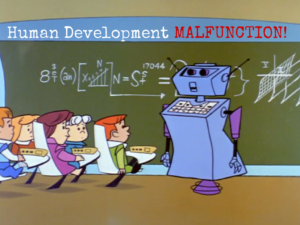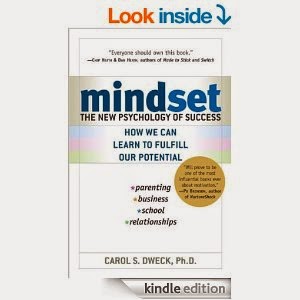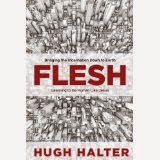Data versus Story.
I see these two perspectives battling it out in many facets of life.
The statistical approach is demanded in schooling and marketing. The analytics are desperately consulted by sports franchises looking for the slightest edge. Even churches can begin to define themselves by the numbers.
The old idea of Story, determining meaning through interactions and connections with others, remains critical. It’s not as shiny and at times it’s uncomfortable, but its proven to work in everyone of the fore mentioned categories.

In Education
As an educator I’m trained to chase anything that provides a glimmer of hope. (This is also why I fit the persona of the typical Cleveland sports fan.) Education decision makers are enamored with data-driven instruction, standardized assessments, and progress monitoring because these things provide a quick picture. A simple number that is easy to understand. This makes it easy to calculate the next move without understanding the story and all of its variables.
Our analytical nature and our desire to understand and interpret everything sometimes takes over. Like Philip when Jesus fed the 5,000. He was crunching the numbers attempting to figure out how much it would cost to feed the crowd. While Andrew didn’t require a clear numerical answer. He just directed the few loaves and fish to the One who chooses to work through relationship and story (John 6:1-15). The Creator of humans seemed to choose story over data in this case.
-Sidenote: If you’re looking for a model, Jesus’ preferred teaching strategy was and is personal connection and parables.
I have faith in our teachers because the initial desire to be a teacher is rooted in building relationships with students. There are teachers fighting off the confines of data with strategies like genius hour and maker space that are based on the personal connection between the student and her learning. This educational design also relies on human interaction and processing the world around us.
In Marketing
For so long business and marketing has been about precise decisions based on consumer statistics. Now, the modern business model is seeking to build value through growing relationships with honest generosity. See the marketing philosophy of Seth Godin or Donald Miller’s StoryBrand as examples.
In Church
In Sports
Professional sports is going the opposite direction, putting an increased emphasis on the analytics while placing team chemistry in the backseat. Franchises are using extreme equations to determine their most productive roster. Check out the movie Moneyball as evidence of this mentality.
But we can’t solely rely on statistics. It is the reason we can never accurately compare players across decades and generations, because we can’t isolate statistics in a bubble. If we could then it’s easy to conclude that Karl Malone was the second best NBA player of all-time (second in career points). Also Drew Bledsoe was a better quarterback than Joe Montana, Johnny Unitas, and Bart Starr (more passing yards).
Choose Story
No matter the industry, the best teams and franchises pair good players with great team chemistry.
Our mind and thoughts are driven by the concept of story, it’s the only way we can determine meaning in our lives which are pushed by so many unpredicted variables. I have no doubt that story is intended to better the human being. There’s even a data based book that proves this: Story Proof: The Science Behind the Startling Power of Story.
Go ahead and attempt to map out your days and years ahead using statistics and a linear equation. Let me know how accurate your hypothesis is to reality.
Instead engage with those around you while acting according to your established vision.






